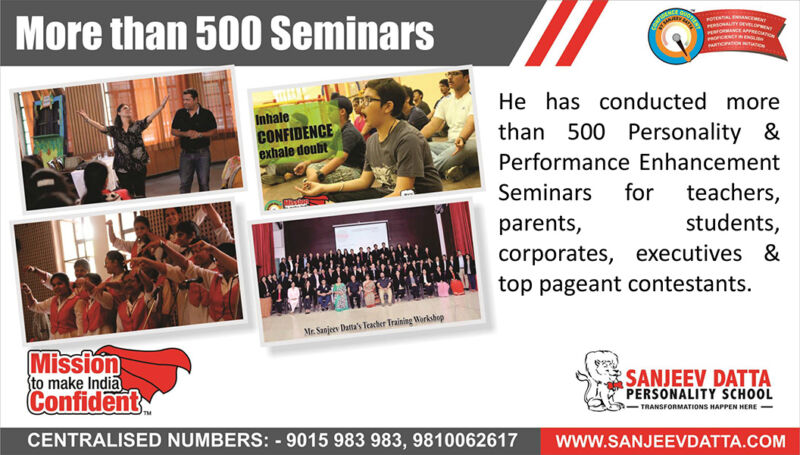Mindfulness and meditation are powerful techniques for cultivating inner peace and clarity. They have been practiced for centuries in various cultures and now have gained popularity for their numerous benefits. In our fast-paced and often stressful lives, finding inner peace and clarity can be challenging. Fortunately, mindfulness and meditation offer powerful techniques to cultivate these qualities, allowing us to navigate life with greater ease and contentment.
It doesn’t take a lot of time to incorporate mindfulness and meditation into our life. Starting with just a few minutes of practice each day and gradually increasing the duration can make a noticeable difference in our well-being.
Understanding Mindfulness and Meditation
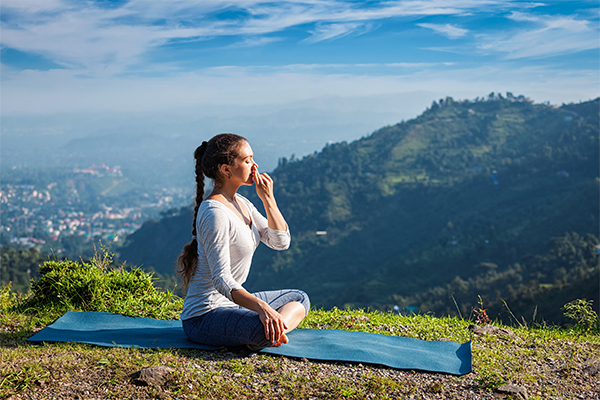
The practice of mindfulness entails consciously concentrating on the present moment without judgment or attachment. The practice of mindfulness is being fully present at the moment without passing judgment on it. It involves observing our thoughts, emotions, and sensations with a curious and non-reactive mindset.
Meditation is a formal practice that cultivates mindfulness and other qualities such as focus, compassion, or gratitude. It involves setting aside dedicated time to sit quietly and bring our attention to a chosen object of obsession, often the breath, a mantra, or a visual image. By repeatedly redirecting our attention to the present moment, we train our minds to become more centered and less easily swayed by distractions.
Transformative Techniques for Mindfulness and Meditation
- Deep Breathing:

Deep breathing is a simple yet effective technique that can be practiced anywhere. By consciously taking slow, deep breaths, we calm the nervous system and bring our attention to the present moment. Deep breathing instantly brings a sense of calm and clarity.
2. Body Scan:
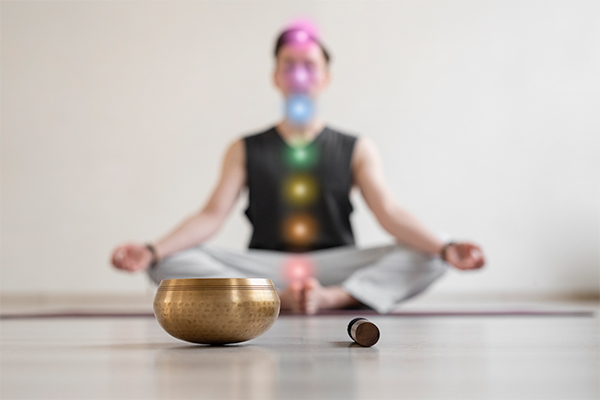
The body scan technique involves a systematic scan of the body, paying attention to each area and noticing any sensations, tension, or discomfort. Start from the top of your head, gradually move down to your toes, and bring your awareness to different body parts. This practice helps to develop a deeper connection with your body and increases body awareness. Embark on a journey of self-discovery and self-fulfillment with our empowering personality development classes.
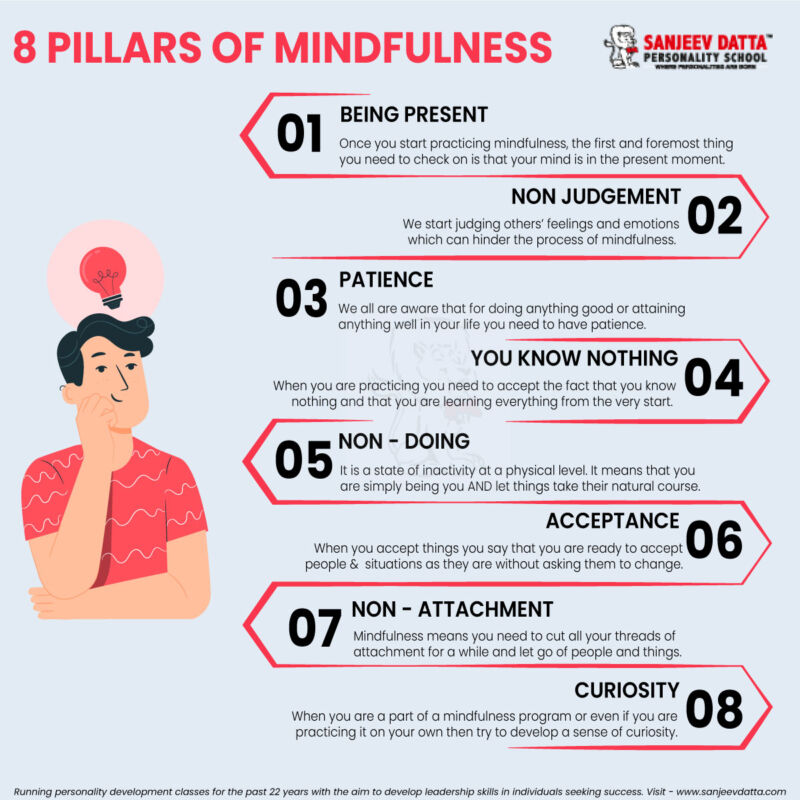
3. Mindful Communication:
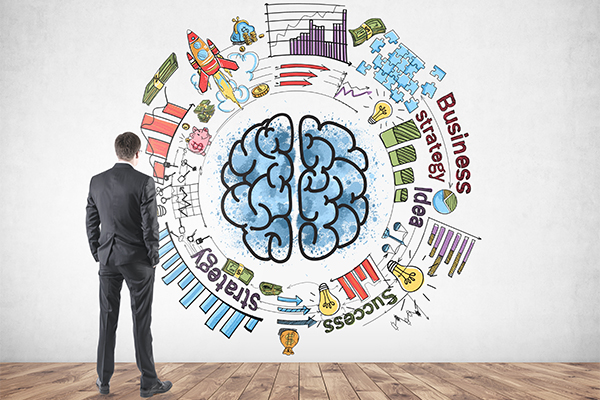
Mindful communication involves being fully present and attentive in our interactions with others. It is about listening deeply, understanding, and responding with intention and awareness. This technique can be particularly beneficial when combined with insights gained from personality grooming classes.
4. Loving-Kindness Meditation:
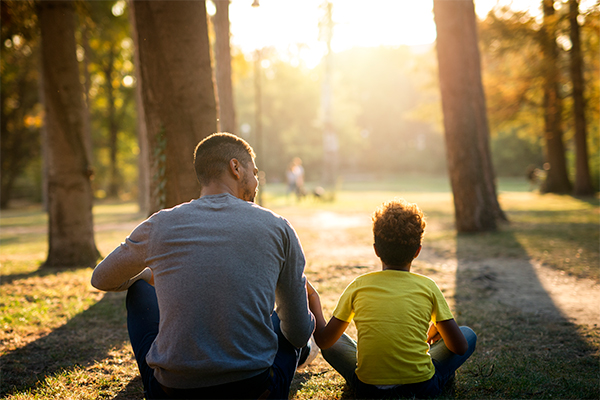
This meditation technique involves directing feelings of love, compassion, and well-wishes towards oneself and others. Start by sending loving-kindness to yourself and then extend it towards loved ones, acquaintances, and even people you may have difficulties with. As a result of this practice’s cultivation of empathy, compassion, and positive feelings, one feels more at ease and connected to others.
5. Guided Meditation:

Guided meditation recordings or apps can be particularly helpful, especially for beginners. These recordings provide instructions and guidance, helping individuals navigate through the meditation process. Guided meditations often focus on relaxation, visualization, or mindfulness techniques, making it easier for individuals to deepen their practice.
Visit: benefits of meditation for kids
6. Mindful Self-Reflection:

A practice called mindful self-reflection entails carefully and impartially watching and assessing your thoughts, feelings, and behaviors. By combining mindfulness with personal development training, you create a powerful practice of self-awareness, self-compassion, and personal growth. Making deliberate decisions and cultivating positive change in your life are all made possible by practicing mindful self-reflection.
7. Mindful Eating:

Mindful eating is the practice of bringing full awareness and presence to eating. Instead of rushing through meals or mindlessly snacking, this technique encourages us to slow down and savor each bite. Notice how your body responds to different tastes and sensations. By eating mindfully, we cultivate a deeper connection with our food, increase gratitude for nourishment, and become more attuned to our body’s hunger and fullness cues.
Visit: mindfulness activities for college students
Conclusion
The techniques and benefits of mindfulness and meditation go hand in hand. We can develop a level of present-moment awareness that enables us to completely connect with whatever we are doing by incorporating mindfulness into daily tasks. This can range from paying attention to the taste of our food, the feeling of the water during a shower, or the sensations in our bodies while exercising. Regular meditation sessions, on the other hand, provide dedicated time for focused attention and deepening mindfulness. During meditation, we learn to recognize distracting thoughts and gently bring our awareness back to the chosen object of focus. This practice enhances our ability to stay present and can lead to a sense of calm and clarity.
Start with small steps, be patient with yourself, and gradually increase the duration and intensity of your practice. With dedication and consistency, you too can experience the profound benefits of mindfulness and meditation in your journey towards inner peace and clarity.
Mindfulness and meditation are effective methods for achieving inner peace and understanding in our life. By incorporating practices such as deep breathing, body scan, loving-kindness meditation, walking meditation, and guided meditation, our ability to understand ourselves and create a calm internal environment improves.
Why Sanjeev Datta Personality School?
- INTERVIEW TRAINING
- Leadership
- Presentation Training
- Social Boldness
- Dressing Etiquette
- Office Etiquette
- Communication Skills
- English Speaking
- Anger Management
- Time Management
- Team Building
- Performance Enhancer
- Soft Skills
- Goal Setting
- Career Counselling
- Student Subject Choice Counselling
- Listening Skills
- Video Presentation
- Meditation
For more details, contact us now!


